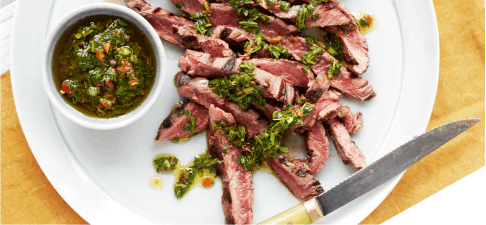What is Rosemary Oil?
Rosemary oil is a type of essential oil extracted from the leaves of the rosemary plant (Rosmarinus officinalis).
It is a highly aromatic oil that has been used for centuries in traditional medicine and aromatherapy for its numerous health benefits.
What does Rosemary Oil smell like?
Rosemary has a distinct aroma that is herbal, woody, and slightly floral. It is often described as having a strong, fresh, and invigorating scent. Some people also detect a hint of pine or eucalyptus in the fragrance.
The scent of rosemary is considered to be pleasant and uplifting, and it is commonly used in aromatherapy to promote relaxation, mental clarity, and focus.
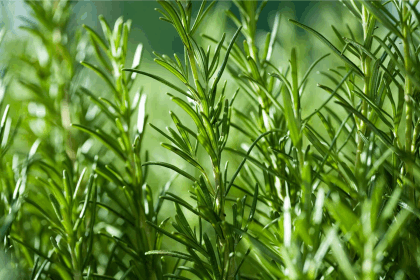
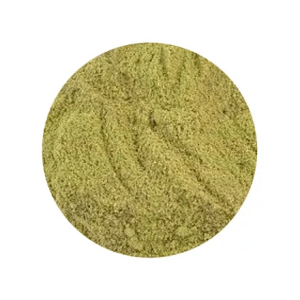
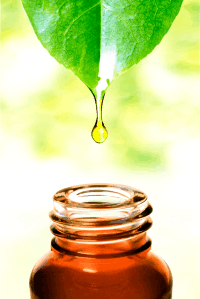
What are active components of Rosemary oil?
1,8-cineole (also known as eucalyptol): This compound has anti-inflammatory and analgesic properties, making it useful for treating respiratory conditions and muscle pain.
Camphor: Camphor has a cooling and numbing effect, and is often used topically to relieve pain and itching.
α-pinene and β-pinene: These compounds have antiseptic and expectorant properties, and can help to clear congestion and improve respiratory function.
Rosmarinic acid: This is a powerful antioxidant that can help to protect cells from damage caused by free radicals.
Carnosic acid: This compound has been shown to have antimicrobial and anti-inflammatory properties, and may also help to improve memory and cognitive function.
Is rosemary a natural pest repellent?
Yes, the strong fragrance of rosemary oil is known to repel a variety of pests, including mosquitoes, flies, fleas, cockroaches, and moths.
Several compounds in rosemary oil have been shown to have pest-repellent properties.
Camphor: Camphor is a natural insecticide and repellent that is often used in mothballs and other pest control products.
α-pinene and β-pinene: These compounds are natural insect repellents that are often used in natural pest control products.
1,8-cineole (eucalyptol): This compound has been shown to have insecticidal properties against several species of insects, including mosquitoes, flies, and cockroaches.
Rosmarinic acid: This compound has been shown to have insecticidal properties against several species of insects, including mosquitoes and houseflies.
Is Rosemary oil used in natural pest repellents?
Yes, rosemary oil is commonly used in natural pest repellents. The strong fragrance of rosemary oil is known to repel a variety of pests, including mosquitoes, flies, fleas, and moths. Rosemary oil can be used in various forms such as sprays, candles, diffusers, and lotions as a natural pest repellent.
It is a popular ingredient in many natural and organic pest repellent products because of its effectiveness and safety compared to synthetic chemicals.
Rosemary oil is an exceptional natural pest repellent that can help keep your garden free from pests and disease.
Is Rosemary Oil in Minus Bite Plant Spray?
Yes, Rosemary oil is an active ingredient in our all natural Plant Spray.
Rosemary oil has a variety of industrial uses due to its antibacterial, antioxidant, and anti-inflammatory properties.
Rosemary Oil
Industrial Uses- Food Industry: Rosemary oil is used as a natural preservative and flavor enhancer in the food industry. It is commonly added to meat, poultry, and seafood products to prevent spoilage and extend shelf life.
- Cosmetics Industry: Rosemary oil is a popular ingredient in cosmetic products due to its ability to soothe and nourish the skin. It is commonly used in creams, lotions, and shampoos to improve skin and hair health.
- Pharmaceutical Industry: Rosemary oil is used in the pharmaceutical industry due to its antibacterial and anti-inflammatory properties. It is commonly used to treat respiratory problems, digestive issues, and muscle pain.
- Aromatherapy Industry: Rosemary oil is widely used in aromatherapy due to its uplifting and invigorating scent. It is believed to help improve concentration, reduce stress, and boost mood.
- Cleaning Industry: Rosemary oil is used as a natural disinfectant and deodorizer in the cleaning industry. It is commonly added to cleaning products to kill germs and eliminate odors.
What are benefits of using Rosemary Oil on crops at the right concentration?
Using rosemary oil at the proper concentration on crops can provide several benefits, including natural pest control, improved plant growth, and increased yield.
The main benefit of using rosemary oil as a natural pest repellent is that it can help control the population of pests that can damage crops, such as aphids, spider mites, and whiteflies.
The active compounds in rosemary oil can repel these pests and prevent them from feeding on the plants, which can reduce the risk of crop damage and increase yield.
Rosemary can also promote plant growth by stimulating the production of plant hormones and increasing the absorption of nutrients. This can lead to stronger and healthier plants, which are more resistant to stress and disease.
Rosemary oil can provide a safe, eco-friendly, and effective alternative to synthetic pesticides, while also promoting plant growth and increasing yield.
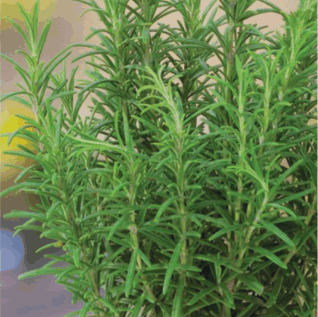
Timeline of the Usage of
Rosemary Essential Oil- Ancient Greece and Rome (around 500 BCE to 500 CE): Rosemary was used as a medicinal herb to improve memory, stimulate circulation, and alleviate pain. It was also used in religious ceremonies as a symbol of remembrance and fidelity.
- Medieval Europe (around 500 to 1500 CE): Rosemary was believed to ward off evil spirits and protect against the plague. It was also used as a culinary herb to flavor meats, soups, and stews.
- Renaissance (around 1400 to 1600 CE): Rosemary was considered a symbol of love and loyalty and was used in weddings and funerals. It was also used to freshen the air in homes and public places.
- Industrial Revolution (around 1760 to 1840 CE): Rosemary oil was first extracted using steam distillation and was used in perfumes, soaps, and cosmetics. It was also used as a flavoring agent in the food industry.
- Modern times (around 1900 CE to present): Rosemary oil continues to be used in a wide range of industries, including aromatherapy, natural medicine, and agriculture. It is also commonly used in household cleaning products and insect repellents.
Reading Time…
Learn more about Rosemary
How To Make Rosemary Oil For Hair Growth
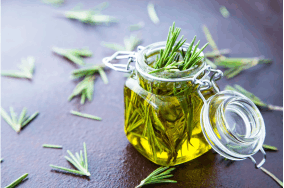
Quick Guide to Growing Rosemary
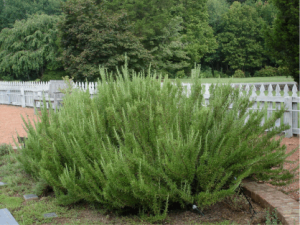
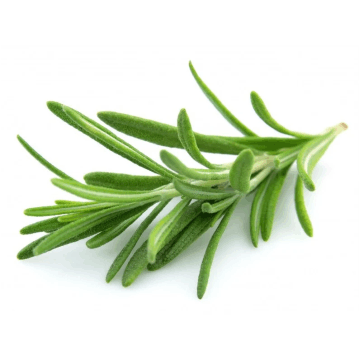
References:
Bozin, B., Mimica-Dukic, N., Simin, N., & Anackov, G. (2006). Characterization of the volatile composition of essential oils of some Lamiaceae spices and the antimicrobial and antioxidant activities of the entire oils. Journal of Agricultural and Food Chemistry, 54(5), 1822-1828.
Emami, S. A., Asili, J., Hosseininaveh, V., & Samadi, N. (2013). Essential oil composition and antioxidant activity of the leaves and stems of Salvia virgata Jacq. from Iran. Journal of Essential Oil Bearing Plants, 16(4), 469-475.
Leitão, S. G., Barbosa, L. C. A., & Guedes, M. L. S. (2011). Chemical composition and evaluation of antibacterial and antioxidant activities of the essential oil of Rosmarinus officinalis L. (rosemary). Brazilian Journal of Pharmacognosy, 21(5), 904-909.
Miraj, S., & Alesaeidi, S. (2016). A systematic review study of therapeutic effects of Rosmarinus officinalis L. essential oil. Iranian Journal of Basic Medical Sciences, 19(9), 967-978.
Özek, T., & Özek, G. (2015). Essential oil composition of Rosmarinus officinalis L. and Rosmarinus eriocalyx Jordan & Fourr. from Turkey. Journal of Essential Oil Research, 27(3), 173-179.
Pereira, O. R., Cebola, M. J., & Bernardo-Gil, M. G. (2013). In vitro cultures of Rosmarinus officinalis L. and rosmarinic acid production. In Vitro Cellular & Developmental Biology-Plant, 49(1), 1-8.
Pourmorad, F., Hosseinimehr, S. J., & Shahabimajd, N. (2010). Antioxidant activity, phenol and flavonoid contents of some selected Iranian medicinal plants. African Journal of Biotechnology, 9(31), 4825-4830.
Sebei, H., Jabri, M. A., Souli, A., & Boukhchina, S. (2015). Chemical composition, antibacterial and antioxidant activities of essential oil from Rosmarinus officinalis L. against foodborne pathogens. Food Science and Technology, 35(2), 288-295.
Yeo, S. G., Song, H. H., & Suh, J. W. (2014). Antibacterial activities of Rosmarinus officinalis Linn. and Melaleuca alternifolia (tea tree) oil against Campylobacter jejuni strains. Applied Microbiology and Biotechnology, 98(2), 611-619.


